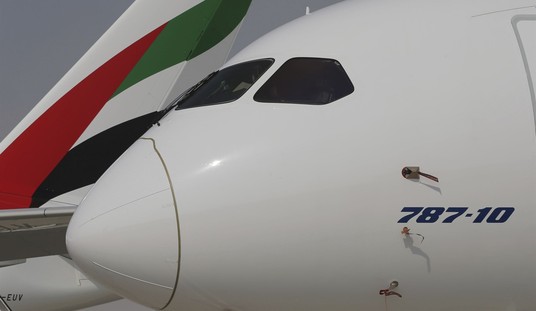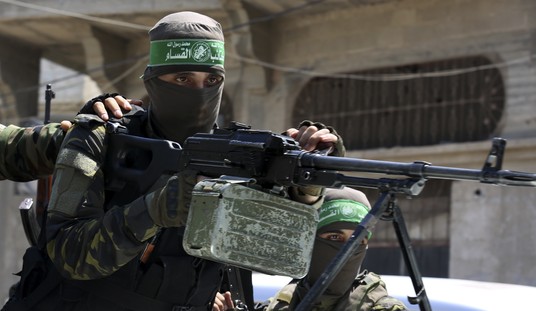Who says Hollywood isn’t wading into political terrain anymore? Before the start of Argo today, my local theater showed a trailer for a remake of Red Dawn. But instead of Patrick Swayze and Charlie Sheen fighting red commie Soviets who invade their town, teens including Tom Cruise’s son Connor will be fighting off an invasion of red commie North Koreans.
Hooray for the implausible scenario but at least plausible bad guys in a town that has reduced the pool of politically acceptable villains to the milquetoast bad generic Europeans with Julian Assange hair (a la Alias) and the occasional Somali pirate. Pyongyang’s buttons will burst with pride at the thought of bringing Washington state (not Colorado, as in the original, but I guess it’s closer for a financially strapped fighting force) to its knees, and Kim Jong Un will likely screen the movie in Kim Il-Sung Square in honor of dear old departed movie-buff Dad (editing out the ending where they invariably lose).
So I was especially intrigued to see how Ben Affleck and Co., institutional Hollywood to the core, would handle the Iran hostage crisis.
Especially as Iran is currently up to more dastardly (nuclear) deeds and time has shown that the Islamic Revolution has only sown hatred, anti-Semitism, and global insecurity.
Especially as time has shown that the Islamic Republic still holds Americans hostage — see the 2009-2011 detention of hikers Sarah Shourd, Shane Bauer, and Joshua Fattal after they likely didn’t cross the border in Kurdish mountains.
One couldn’t have predicted this in scheduling the film’s release date, but the opening scenes of protesters burning the American flag and scaling the walls of the embassy in Tehran are eerily reminiscent of scenes we saw just weeks ago out of Cairo, and the storming of the compound brings a chill when thinking of Benghazi.
The film opens with an abridged timeline that points the finger at the U.S. for installing Shah Mohammad Reza Pahlavi, who ushered in “an era of torture and fear” and began “a campaign to Westernize Iran.” This mini-history left out the role of the Islamist movement and its motivations to forge a theocratic state.
The opening sequence of Argo, as the Iran hostage crisis begins, is similar to the sequence of terrorists storming the Israeli athletes’ dorm in Munich. Whatever one thinks of the substance or direction in the rest of the movie, these scenes stand on their own, displaying the chilling brutality of terrorism without any further explanation needed.
The militants ransacking the Tehran compound find an Ayatollah Khomeini dartboard, which is pretty awesome and predictably infuriates the bunch. They also find the documents hastily shredded when embassy staff couldn’t get an incinerator to do its job, and the Revolutionary Guards task a bunch of children to piece together the shreds, sweatshop-style. What Washington fears they’ll soon realize is that six staffers slipped out in the chaos and made their way to the Canadian embassy.
The reaction from a head spook back at the CIA wanders into the “but we must’ve deserved it” territory – also familiar territory these days.
“What’d you expect?” one character says. “We helped a guy torture and deball their entire population.”
The agency comes to the conclusion that they must “send in a Moses” to extract the six Americans — exfiltration expert Tony Mendez.
While watching Return to the Planet of the Apes, Mendez, played extremely well by Affleck, comes up with the “flamboyant cover identity” through which he believes he can get the Americans out of Iran. He enlists the help of veteran make-up artist John Chambers, played by John Goodman, to set up the fake sci-fi film Argo that would need a Middle Eastern landscape. “So you want to come to Hollywood and act like a big shot without doing anything?” Chambers quips. “You’ll fit right in.”
Alan Arkin plays a producer, Lester Siegel, who is on his way to pick up some lifetime achievement award, and is being asked to help with the cover by Chambers and Mendez, and is stirred to action by seeing a blindfolded hostage on the TV. “If I’m doing a fake movie it’s gonna be a fake hit,” he declares in one of his many pitch-perfect lines.
When Mendez questions why they need to option the script for the fake movie, Siegel replies, “You’re worried about the ayatollah? Try the WGA.”
And when they need that extra lift — aka a nice story in Variety to shove in suspicious Iranian guards’ faces — Arkin’s character notes, “If you want to sell a lie, get the press to sell it for you.”
For the films’ shared ’70s vibe, wide lapels, and polyester ties, Argo doesn’t attempt to get as political as Munich, save for the shah-blaming.
Save for when an Iranian consulate official in Turkey crosses out “kingdom” on a now-defunct stamp and writes in “Islamic Republic,” the Islamic tie isn’t all that prevalent in the film. A clip of the ayatollah notes that “people are looking forward to martyrdom,” and the unforgiving, piercing eyes of Ruhollah Khomeini peer out from various corners of the movie.
The streets of Tehran are choked with fear and tension instead of joyful rebellion: a man’s body hanging by the neck from a crane along a busy street, cars burning in the streets, young Islamist gunmen staking out street corners and eyeing passers-by. When Mendez’s “film crew” is invited out by Iran’s filming liaison, they are surrounded by the eyes of spies, angry mobs, and an era of fear and torture no better than the one earlier described.
Argo is a taut thriller and I was hooked every minute. But it would have been helpful to note that these angry guys staging mock executions on American hostages — and real executions of anyone thought to be a sympathizer of the Great Satan — had a deeper underlying motivation than anger over the shah’s exile.
Homeland, despite its detractors, clearly makes the link between Islam and terrorism. Sgt. Brody, as an American captive, sees prayers one day and is lured toward the religion. We see this as his binding link to terrorist (bin Laden stand-in) Abu Nazir, and their bond was forged further by the death of Nazir’s son Isa in a U.S. airstrike. Brody is enraged when his wife, equally enraged to find out that he became a secret Muslim, throws his Koran on the floor. Brody paints his conversion to Islam to CIA agent Carrie Mathison as a comforting crutch in a time of crisis when there weren’t exactly Bibles around, but viewers also see that it’s the tie that binds him to terrorism.
Argo not only resurrects the Iran hostage crisis, but old news clips that highlighted the public anger that helped make Jimmy Carter’s first term his last.
“John Wayne’s in the ground six months and this is what’s left of America,” Arkin as producer notes.
There is no footnote to say that Iran has returned to peace and prosperity. It seems as if the filmmakers are content to let the headlines speak for themselves; the greater real-life controversy was whether Canada got enough onscreen credit for its role in the rescue.
“If I look at the archival footage that I used for research, from 30 or whatever years ago, it looks just like some of the stuff we’re seeing on television now,” Affleck told The Hollywood Reporter. “…And it’s the same regime, it was Khomeni, now it’s Khamenei — there’s still this Islamist, this Stalinist regime, and that makes me sad.”
In fact, one of Mendez’s lines in justifying the risky operation could speak to the running clock on Iran’s nuclear development today: “There are only bad options; it’s about finding the best one.”
***
See also at PJ Lifestyle:










Join the conversation as a VIP Member